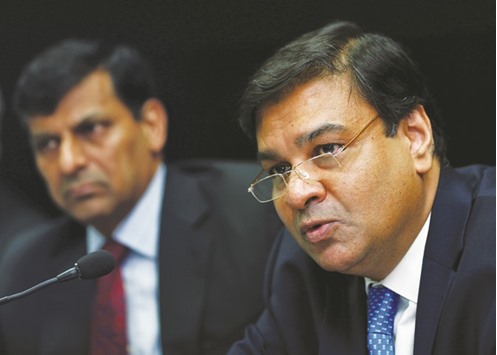When Urjit Patel became head of the Reserve Bank of India’s monetary policy department three years ago, the to and fro of bankers and traders meeting officials for cosy, broad-ranging discussions abruptly ended.
Meetings go on to this day, but out went the kind of private chats that could unsettle markets, occurrences that became known as “open mouth operations”, as opposed to open market operations the RBI carries out.
As he takes over as RBI governor next month, market players and economists who have met him expect Patel to instil the same arm’s length approach and unified communication to the institution as a whole.
That is likely to involve acting as its chief spokesman and waiting for scheduled reviews to discuss policy in public, which some traders believe will bring more clarity and transparency to the RBI’s stance as long as Patel communicates it effectively.
“Too much communication can also confuse markets,” said A Prasanna, an economist at ICICI Securities Primary Dealership Ltd.
“We will expect clarity from the new governor in the October policy,” he said, referring to the next policy review which will be Patel’s first in charge.
“In case there are any changes in thinking, the policy day will be a good opportunity for the new governor to lay that out.”
Still, market participants also warned that excessive distance could leave the RBI cut off from market thinking, and make it harder to convey important feedback about its policies. RBI had n comment for this article.
A push towards a more unified communications strategy would mark an extension of outgoing governor Raghuram Rajan’s drive to transform what some saw as a ponderous organisation with 17,000 staff into a modern, nimble central bank.
It may go also further.
Rajan’s tendency to veer off topic and address global economic issues and India’s social agenda raised hackles among some of Prime Minister Narendra Modi’s closest aides, who openly criticised the RBI chief for talking out of turn. Patel, widely seen as more introverted than the man he will replace, must get used the limelight he has so far shunned, but can be expected to stick more closely to the script, the sources said.
As RBI deputy governor, Patel has made hardly any public appearances, although he is widely seen as closely aligned with Rajan on inflation and the need to clean up bad debt at banks.
That will be welcomed by foreign investors, who see Rajan’s push to control inflation as key to India’s economic success, along with Modi’s promises of major reforms.
They may have to wait longer, though, for clues about the RBI’s latest thinking.
Meetings between RBI officials and market participants still take place at the RBI, but they are smaller, with people called in for more focussed talks about specific issues.
Market participants, who spoke on condition of anonymity so as not to jeopardise ties with the RBI, also say Patel is engaged at meetings, with one banker describing him as “actively participating, asking questions and giving suggestions.” Another banker added: “You have to be very, very well prepared to interact with him because he knows a lot of what is going on.”
At the same, though, Patel keeps his cards close to his chest, avoiding giving away too much and confusing the markets in the process.
In one oft-quoted example, bond markets fell sharply in July, 2010, when a senior unnamed RBI official was quoted by several media outlets expressing a much more hawkish stance than that expressed by then RBI governor Duvvuri Subbarao after a meeting with reporters.
Patel’s caution is also expected to extend to meetings and conferences, where market players had long been used to having RBI representatives participate.
Unlike previous editions, a senior RBI official from the monetary policy department did not attend the Forex Association of India’s annual gathering last year. Rajan did, however, address the audience at a separate event.

Reserve Bank of India governor Raghuram Rajan and deputy governor Urjit Patel attend a news conference after the bi-monthly monetary policy review in Mumbai.
